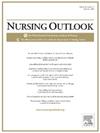A reproductive justice investigation of utilizing digital interventions among underserved populations with criminal legal system supervision: Policy brief
IF 4.1
2区 医学
Q1 NURSING
引用次数: 0
Abstract
Background
Mobile health interventions that utilize artificial intelligence may provide way for underserved populations to engage with healthcare.
Purpose
Examine the policy considerations that must be deliberated when developing, regulating, implementing, and sustaining mHealth apps among historically underserved individuals.
Methods
Reproductive Justice was used to investigate policy considerations for those with criminal legal system supervision who engage with mHealth apps. Three policy considerations resulted: 1) improving the legislative and regulatory landscape of digital technology, 2) enhancing comprehensive data protection legislation, 3) heightening privacy protections.
Discussion
The need to bring awareness to policy protections on the local, institutional, state, federal, and global levels specific to mHealth apps among underserved groups with criminal legal supervision is required.
Conclusion
These emerging advances in technology serve as an avenue for direct healthcare services to collaborate with other professions and organizations to implement ethical interventions that respect human rights and improve reproductive health equity.
在刑事司法系统监督下,在服务不足的人群中利用数字干预的生殖司法调查:政策简报。
背景:利用人工智能的移动医疗干预可能为服务不足的人群提供参与医疗保健的途径。目的:研究在历史上服务不足的人群中开发、管理、实施和维持移动健康应用程序时必须考虑的政策因素。方法:采用生殖司法方法调查刑事司法系统监管人员使用移动医疗应用程序的政策考虑。由此产生了三个政策考虑:1)改善数字技术的立法和监管环境,2)加强全面的数据保护立法,3)加强隐私保护。讨论:需要提高对地方、机构、州、联邦和全球层面的政策保护意识,特别是在刑事法律监督下服务不足的群体中,移动健康应用程序是必要的。结论:这些新出现的技术进步是直接保健服务与其他专业和组织合作实施尊重人权和改善生殖健康公平的道德干预措施的途径。
本文章由计算机程序翻译,如有差异,请以英文原文为准。
求助全文
约1分钟内获得全文
求助全文
来源期刊

Nursing Outlook
医学-护理
CiteScore
6.20
自引率
7.00%
发文量
109
审稿时长
25 days
期刊介绍:
Nursing Outlook, a bimonthly journal, provides innovative ideas for nursing leaders through peer-reviewed articles and timely reports. Each issue examines current issues and trends in nursing practice, education, and research, offering progressive solutions to the challenges facing the profession. Nursing Outlook is the official journal of the American Academy of Nursing and the Council for the Advancement of Nursing Science and supports their mission to serve the public and the nursing profession by advancing health policy and practice through the generation, synthesis, and dissemination of nursing knowledge. The journal is included in MEDLINE, CINAHL and the Journal Citation Reports published by Clarivate Analytics.
 求助内容:
求助内容: 应助结果提醒方式:
应助结果提醒方式:


